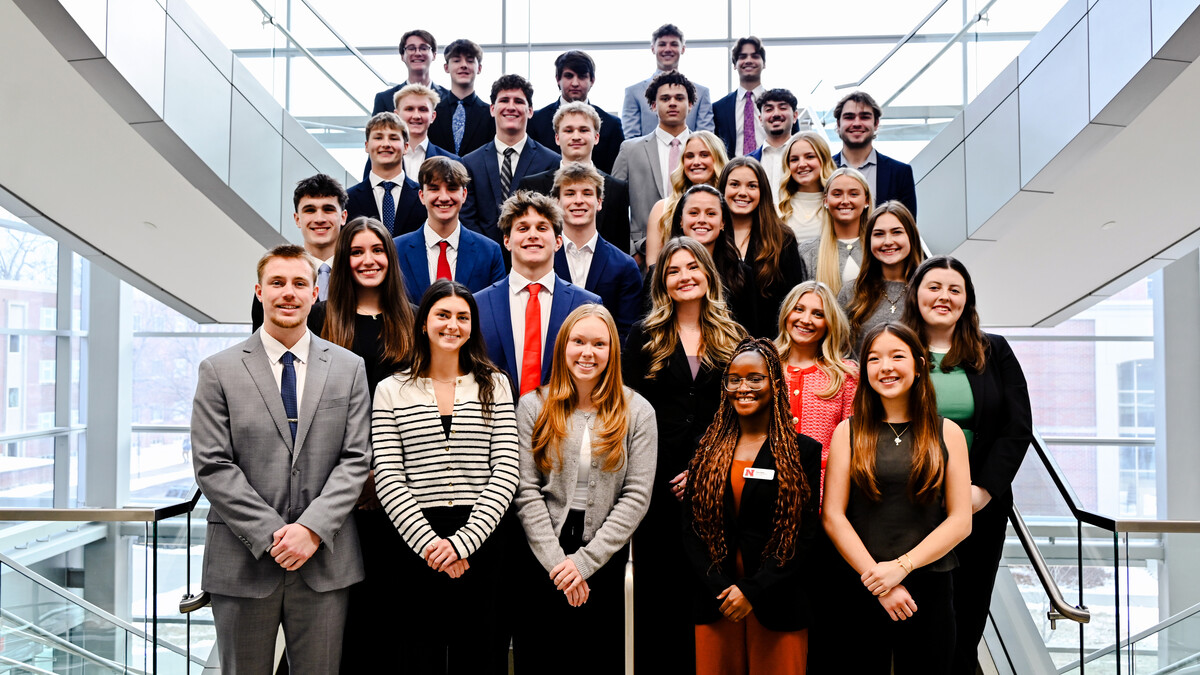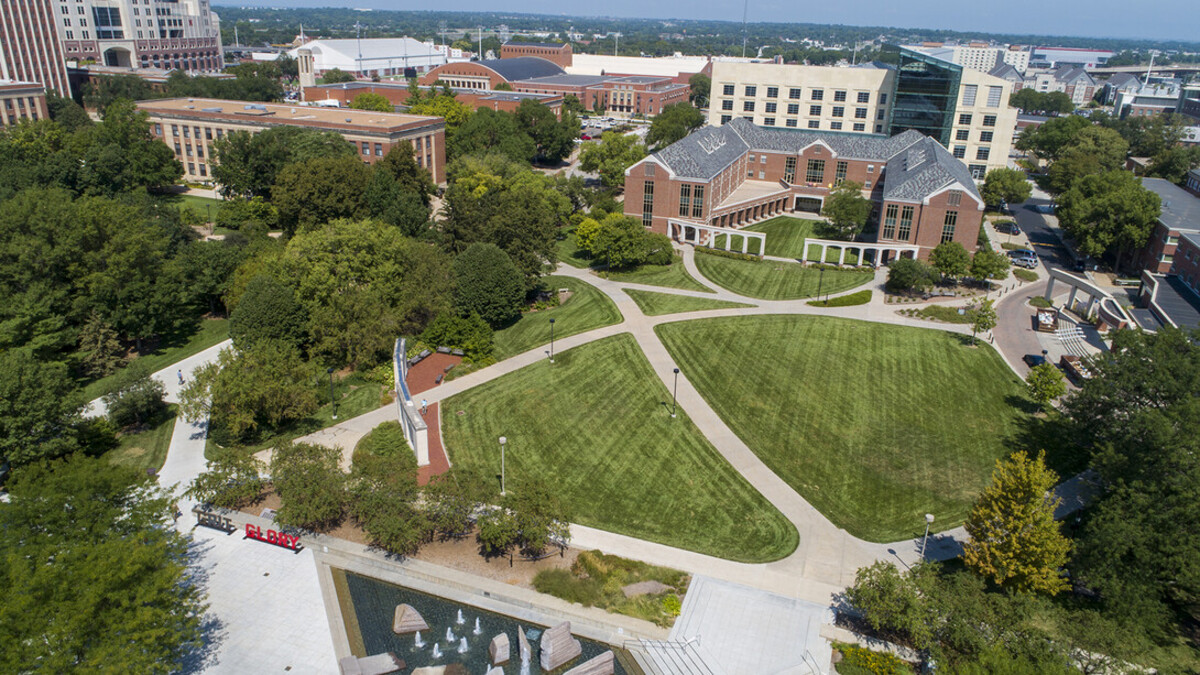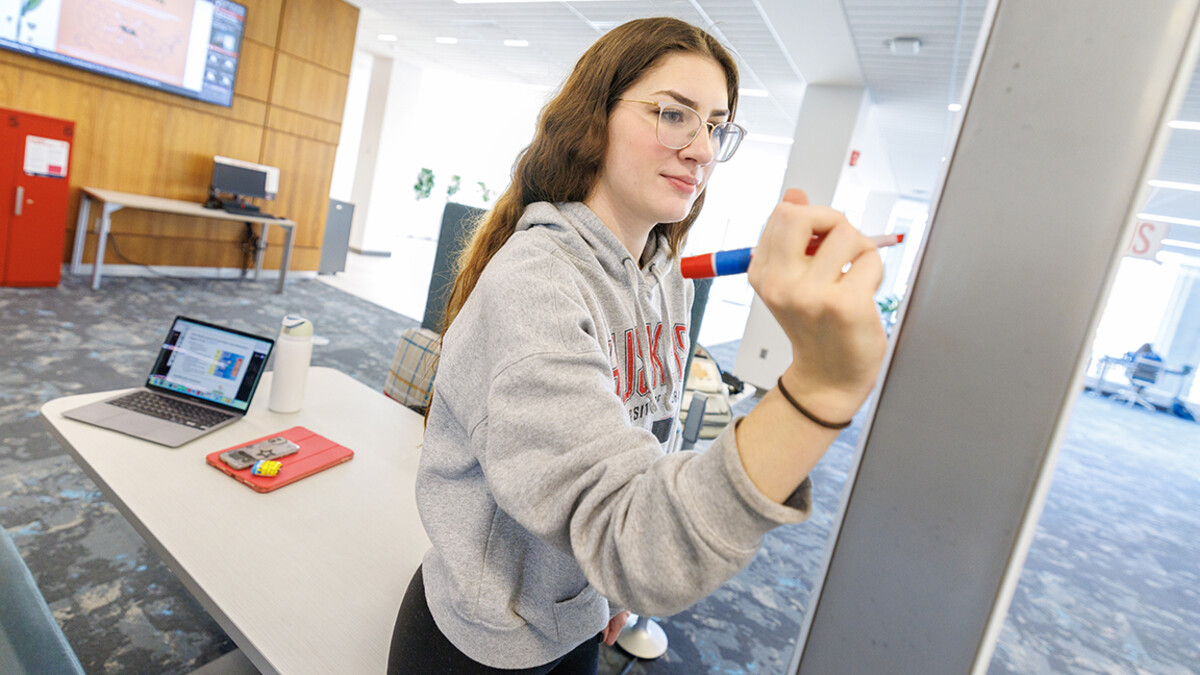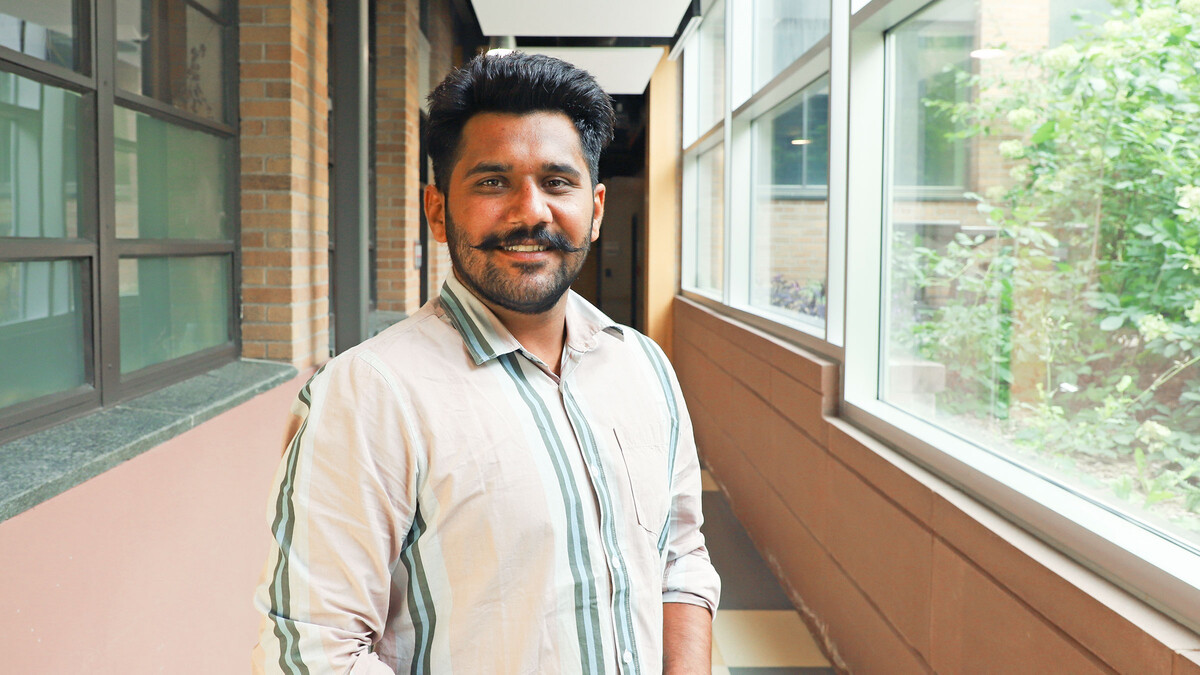
Before Tyler White began teaching at the University of Nebraska–Lincoln in 2010, opportunities for students looking to study homeland security and national intelligence were few and far between.
Over the course of his decade-long career, White has made it his mission to change that. He’s helped lead the creation of Nebraska’s National Security Studies program, which allows students to minor in national securities; pioneered an innovative partnership with U.S. Strategic Command; and created countless seminars and training simulations for students, both at the university and nationwide.
“It’s really hard to sum it up, because 10 years feels like an eternity and yesterday at the same time,” said White, associate professor of practice in political science and one of nearly 1,000 faculty and staff members being honored during Nebraska’s 2020 Service Awards. “It’s amazing how quickly it goes, but I firmly believe that I have one of the best jobs in the world. I can’t wait to keep doing it. I love showing up to work in the morning, and that’s a great feeling.”
White is a longtime Husker, starting off at the university as a freshman in 1999 and eventually earning his Ph.D. in political science from Nebraska in 2010.
A case of perfect timing helped him develop a teaching niche in national security issues. In 2009, as he was finishing up his doctorate, the university was selected as an Intelligence Community Center for Academic Excellence by the U.S. Office of the Director of National Intelligence. The designation came with grant money to help Nebraska build out a national security program, and White, who long had a passion for the subject, knew he wanted to help.

“It’s always been an interest, and I happened to get in right when some of these opportunities were opening up,” White said. “I was really fortunate to be able to get in on the ground floor there and start to build a program, and I see tons of blue sky out there for us to continue to explore.”
Nebraska’s national securities minor was created in 2011. At the time, it had 12 students. Today, it has grown to 132 students, with alumni going on to work for the Central Intelligence Agency, Federal Bureau of Investigation, National Geospatial-Intelligence Agency, Defense Intelligence Agency, the U.S. State Department, U.S. Strategic Command and the U.S. Department of Defense.
“It’s been incredibly rewarding to see the amount of interest that there is out there. There’s still a lot of untapped potential in terms of continuing to expand offerings for national security, because every time we’ve done it, more and more students sign up,” White said.
White’s teaching lineup includes an introduction to national securities course, a national securities capstone, and a terrorism and insurgency course. He’s also developed an Honors course, “You MAD Bro? Mutually Assured Destruction, Deterrence and Assurance: The Politics of Nuclear Weapons,” that has been a hit with students.
“I think that’s my favorite class, because I get a really awesome chance to work with folks at the U.S. Strategic Command. Their analysts provide questions that they’re interested in, and our Honors students work in teams to then brief the analysts on the questions when they come down each semester,” White said. “It’s been a really cool opportunity, and I’ve gotten tons of good feedback.”
Two years ago, White was named 2018 Instructor of the Year by the International Association for Intelligence Education. The prestigious award is given out each year at the organization’s annual conference in Sydney, Australia.

Instead of jetting off to the Gold Coast alone, he brought three students along to attend the conference with him, turning a celebratory moment into a once-in-a-lifetime learning opportunity.
That trip, White said, is representative of his overall career philosophy.
“Whatever success you have, you still have to make it about the students,” White said. “I feel like my career is as much about public service, in encouraging young people to be public servants, as it is about the traditional academic stuff.”
In the future, White said he sees plenty of room for Nebraska’s National Security Program to grow.
“I would love to have a master’s degree program that is really competitive with other really good programs out there, and I’d love to have a major in national security. I’d also love for us to be able to expand our working relationships with the partners that we have now, particularly with Strategic Command, because they’re just so great to work with,” White said.
Looking ahead to the next decade, White draws inspiration from a conversation he had with Admiral Cecil Haney, former leader of U.S. Strategic Command, over lunch several years ago.

“He said, ‘My biggest concern isn’t that we can’t manage the nuclear arsenal and our mission right now. My biggest concern is that we won’t have an educated group of people to be the next generation to do this job. That’s why I want to talk to you and other people like you, because we need you to be teaching that next generation of people,’” White said.
“I took that as a challenge, but also as a way that I can contribute to this greater mission. By helping inspire our students — and we’ve got some of the best students in the entire country here — get oriented on that problem, it keeps us all safe. That’s a way for me to contribute. If I can keep building programs that produce those students with that outcome, that’s what I want to continue doing.”







